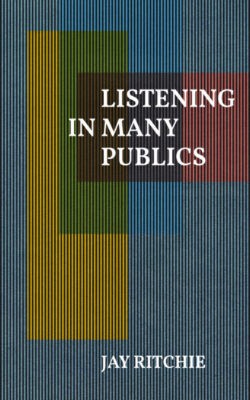
Listening in Many Publics
Jay Ritchie
Invisible Publishing
$23.95
104pp
9781778430442
to repeat as you pass,
their boundary doubling,
dividing in from out, have from haven’t,
is from was […]
Soon this grammar becomes the image itself, found everywhere from “The trees beside the street / an ellipsis” to the “reeds / that bend like question marks.”
The thrust of the collection returns, however, to a genuine grappling with the incoherencies of modern life. This honestly comes at a price. Tepid metaphors unfurl because they are not metaphorical, but literal. Other times, figuration is disavowed entirely, and the common struggle plainly named: “capital, sustenance, capital, sustenance.” The poems fall back to materiality not for lack of imagination, but as a consequence of confronting the hard edge of a life, where figuration proves insufficient in the face of mounting crises.
Who is the enemy? The image dispirited by modernity or the poet’s reluctance to capture it? By turns disparaging and optimistic, Listening in Many Publics refuses an easy answer. Instead, it amounts to a survival tale – of trying to sustain oneself on nimble poetic disposition under the continuous and varied threats of exhaustion that come from both without and within.mRb






0 Comments